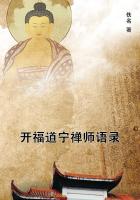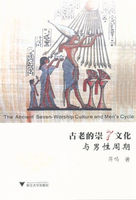Lord Russell felt the force of this inference, and undertook to disprove it. His effort lasted till his death. At first he excused himself by throwing the blame on the law officers. This was a politician's practice, and the lawyers overruled it. Then he pleaded guilty to criminal negligence, and said in his "Recollections":-- "I assent entirely to the opinion of the Lord Chief Justice of England that the Alabama ought to have been detained during the four days I was waiting for the opinion of the law officers.
But I think that the fault was not that of the commissioners of customs, it was my fault as Secretary of State for Foreign Affairs." This concession brought all parties on common ground. Of course it was his fault! The true issue lay not in the question of his fault, but of his intent. To a young man, getting an education in politics, there could be no sense in history unless a constant course of faults implied a constant motive.
For his father the question was not so abstruse; it was a practical matter of business to be handled as Weed or Evarts handled their bargains and jobs. Minister Adams held the convenient belief that, in the main, Russell was true, and the theory answered his purposes so well that he died still holding it. His son was seeking education, and wanted to know whether he could, in politics, risk trusting any one. Unfortunately no one could then decide; no one knew the facts. Minister Adams died without knowing them. Henry Adams was an older man than his father in 1862, before he learned a part of them. The most curious fact, even then, was that Russell believed in his own good faith and that Argyll believed in it also.
Argyll betrayed a taste for throwing the blame on Bethell, Lord Westbury, then Lord Chancellor, but this escape helped Adams not at all. On the contrary, it complicated the case of Russell. In England, one half of society enjoyed throwing stones at Lord Palmerston, while the other half delighted in flinging mud at Earl Russell, but every one of every party united in pelting Westbury with every missile at hand. The private secretary had no doubts about him, for he never professed to be moral. He was the head and heart of the whole rebel contention, and his opinions on neutrality were as clear as they were on morality. The private secretary had nothing to do with him, and regretted it, for Lord Westbury's wit and wisdom were great; but as far as his authority went he affirmed the law that in politics no man should be trusted.
Russell alone insisted on his honesty of intention and persuaded both the Duke and the Minister to believe him. Every one in the Legation accepted his assurances as the only assertions they could venture to trust. They knew he expected the rebels to win in the end, but they believed he would not actively interpose to decide it. On that -- on nothing else -- they rested their frail hopes of remaining a day longer in England. Minister Adams remained six years longer in England; then returned to America to lead a busy life till he died in 1886 still holding the same faith in Earl Russell, who had died in 1878. In 1889, Spencer Walpole published the official life of Earl Russell, and told a part of the story which had never been known to the Minister and which astounded his son, who burned with curiosity to know what his father would have said of it.
The story was this: The Alabama escaped, by Russell's confessed negligence, on July 28, 1862. In America the Union armies had suffered great disasters before Richmond and at the second Bull Run, August 29-30, followed by Lee's invasion of Maryland, September 7, the news of which, arriving in England on September 14, roused the natural idea that the crisis was at hand. The next news was expected by the Confederates to announce the fall of Washington or Baltimore. Palmerston instantly, September 14, wrote to Russell: "If this should happen, would it not be time for us to consider whether in such a state of things England and France might not address the contending parties and recommend an arrangement on the basis of separation?"















